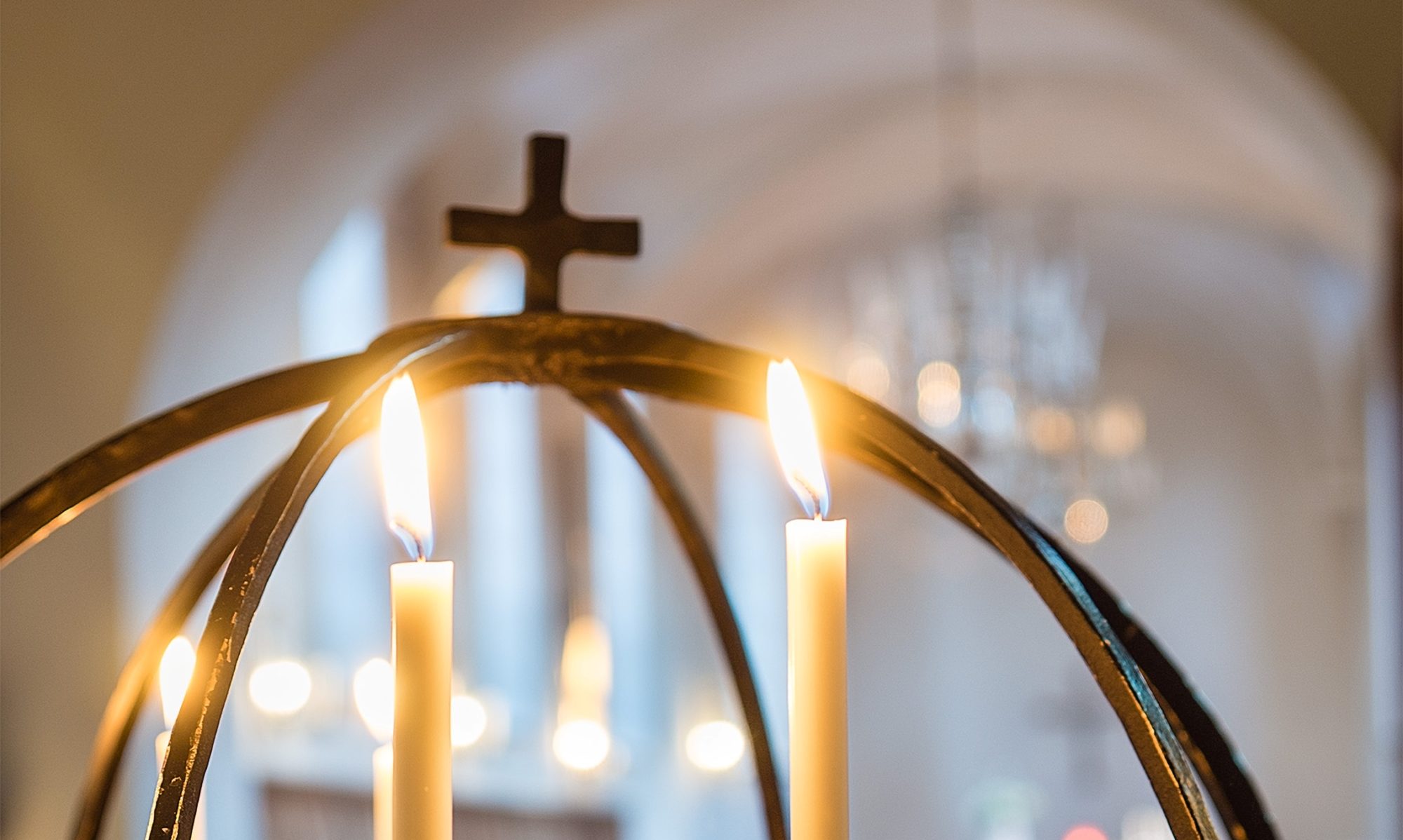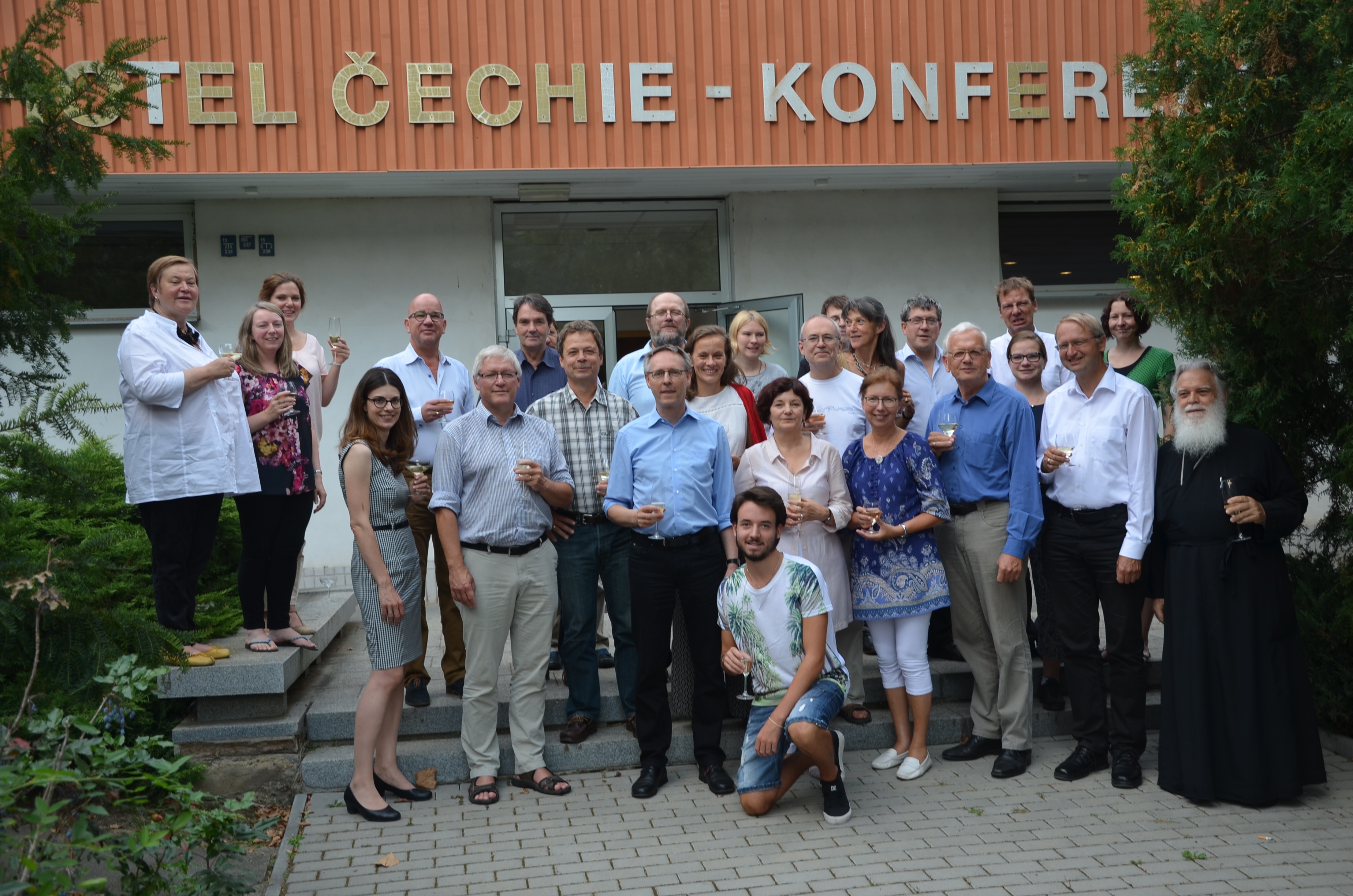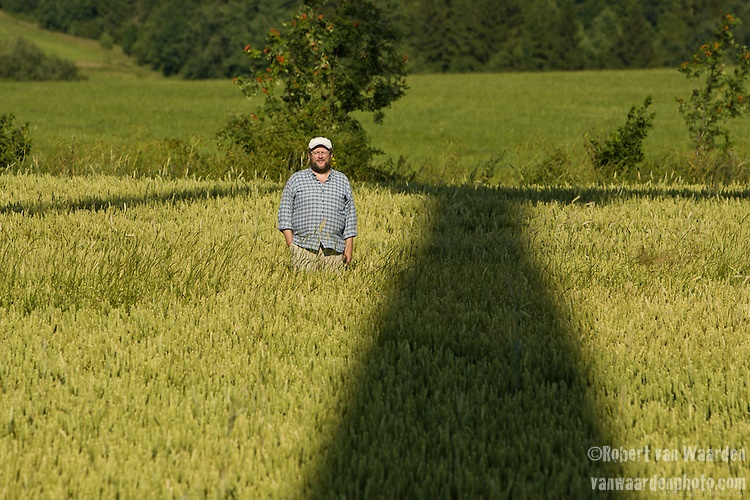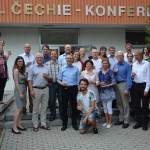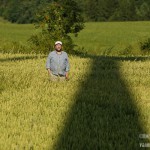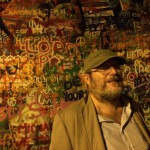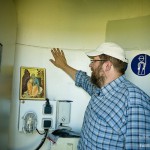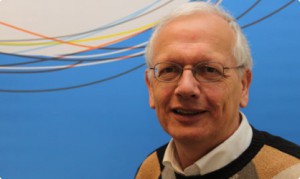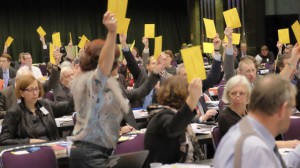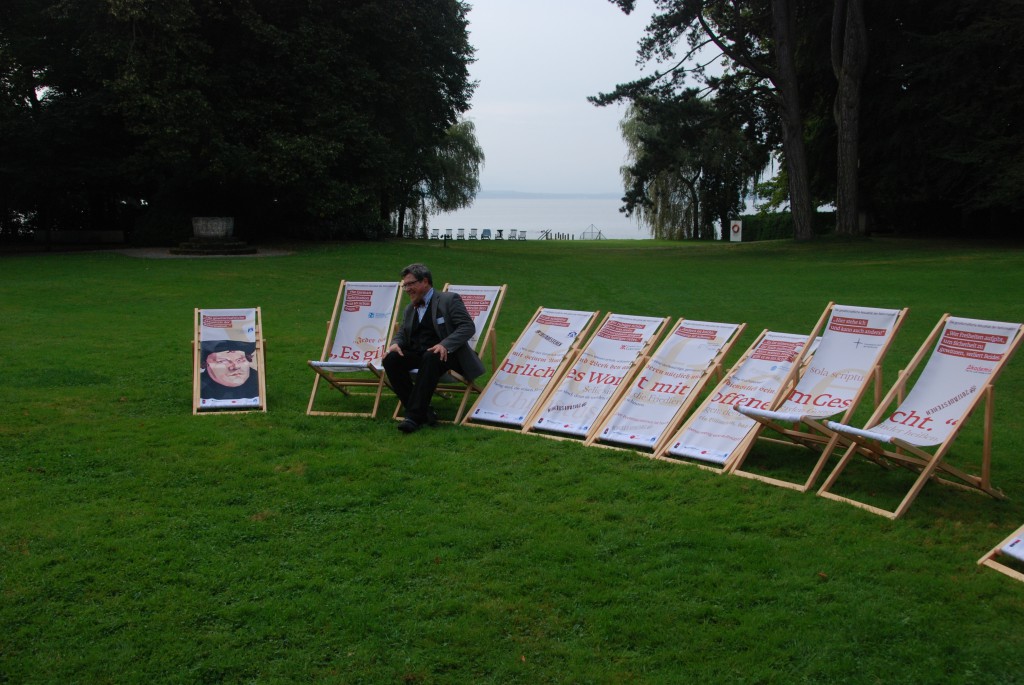The Evangelical Academy of Thüringen (Neudietendorf) is part of organizing an encounter and a conference for about 120 young people and young adults, mainly from Poland, Germany and France, at the occasion of the 200th anniversary of the so-called “Wartburgfest”. The Wartburg is not only symbol of the reformation, where Luther had to hide and translated the bible. It is also the symbol for one of the first big first student´s gathering 300 years later. Despite its national connotation, this Wartburgfest can also be seen, and should be celebrated, as a first step in the direction of a democratic society. The organisers of the anniversary event in 2017 want to discuss democracy from a European perspective. On the agenda are themes such as: refugee policies, and rising right-wing populism. Oikosnet members who are interested in participating or sending participants are invited to contact Michael Haspel at: haspel@ev-akademie-thueringen.de.
Members‘ Priority-Themes and Exchange Wishes
At the Annual Assembly in Prague, members of Oikosnet Europe were invited to indicate their priority themes and their wishes for staff exchanges.
The list can be found at the following link
This is an initiative to foster cooperation in-between members. The hope is that this way thematic working or discussion groups will be established across Europe and mutually enrich perspectives and programmes. It is also hoped, that staff exchanges will contribute to further sharing each other’s richness, experience and expertise.
The Oikosnet Board is fully aware that further steps need to be taken in order to make this process of sharing more timely, interactive and inviting. Ideas are welcome before Board will resume for its next meeting in Mid-December.
Oikosnet mourns the death of Roman Juriga
Oikosnet Europe together with the worldwide environmental and ecumenical movement mourns the death of Roman Juriga who died suddenly and unexpectedly on 6. October 2016.
Most Oikosnet members met with Roman at the occasion of the most recent Annual Assembly in Prague in September. He looked tired, perhaps stressed, but full of new plans. The Annual Assembly celebrated that he just managed to acquire a new building for the academy in Jarvornik. A new start was in sight.
Oikosnet Europe recognizes his contributions to the ecological and ecumenical movement as well as to the dialogue between church and society. “Roman was, what I would call, a diesel-engine: it takes a while before it gets warm and strong, but then it is very powerful and long lasting. We loose a good colleague and dedicated member of our association,” Jaap van der Sar, President of Oikosnet Europe, said. “We were friends since many years and we planned several initiatives together,” Rüdiger Noll, Secretary of Oikosnet Europe added. “I still cannot believe that Roman is no longer with us. I admired his courage and trust in God’ guidance in often difficult times. Roman would not let loose even if the circumstances were not brilliant.”
Among many other functions, Roman was Director of the Orthodox Academy of Vilemov (Czechia) since 1995. He was the regional representative of the orthodox youth organization Syndesmos from 1995 to 1999 and for many years, he was the Media Secretary of the Diocese of Olomouc and Brno.
Many remember Roman for his environmental commitment. The Orthodox Academy in Vilemov was the only academy with an on wind-energy installation. No wonder that Roman belongs to the founding members of the European Christian Environmental Network (ECEN). The Founding Assembly in 1998 took place in “his” academy. In 2005, Roman was awarded with the Czech National Eurosolar Price.
But, more important, many will keep Roman in memory as a committed Christian, full of ideas, thinking out of the box and with lots of energy for new initiatives. Roman was always open to share his insights and to relate to others across borders. Oikosnet Europe will be poorer without him.
Roman leaves behind his wife Eva and two children. Please keep his family and friends in your prayers.
If you want a small video dedicated to Roman´s life, please watch: Click here!
Is your organization prepared for Europe?
A new online tools www.europeanisation.eu is available for organisations and institutes in the area of adult education to assess their readiness to think and act European. The tool was developed by a consortium of organisations, including the EU Fundraising Association. Some Christian Academies have contributed with their input to developing this tool. (cf. earlier Oikosnet Newsletters)
The tool offers a self-analysis in three areas:
- Which issues are relevant to the organization in the process of becoming more European
- Where does the organization stand in the process of Europeanisation
- Recommendations for further development.
“I am sure many of our Oikosnet members will profit from such a self-analysis and subsequent recommendations as thinking and acting European is high on the agenda of many of many of them and the basis for their membership in Oikosnet Europe.” With these words Rüdiger Noll, Secretary of Oikosnet Europe and member of the EU Fundraising Association, recommended the self-evaluation.
What is next?
A new president in the USA. What will happen there and how will the outcome of the election affect us? Definitely it is clear that the surprise of the result makes us think about developments in our own continent. How are we dealing with polls? Do we ‘just’ consider the votes and far less the reasons why people have made their choice? Do ‘we’ listen enough to sentiments and arguments of people who seem to loose far more than to gain from globalisation?
Polarisation is not new in our continent. It is already with us as I noticed when I recently listened to some colleagues in the Eastern part of Germany. They told about the careful and intense work they are doing when dealing with political views which remind too much to the period before World War II. What can academies and laity centres do? What are the options in a divided society to work on? I heard that our colleagues carefully support people from all walks of life in this region when they are looking for a society where people want to live well together. It is not so clear, obviously, what everyone is considering ‘living well’. How is this connected with the construct of an ‘identity’? What to do with the sometimes very rude way people behave towards each other? It appeared that each of the colleagues has to find a balance about the tensions they are able to deal with – and where they will withdraw. At which moments is it wise to step back, to not talk anymore, to vote against anything.
Recently in our country a book was published about the processes behind polarisation. In this book – so far only in Dutch – five roles are distinguished in polarisation processes. The first is the role of the pusher, the ones who give their stand very firm, also by hate-speech about the opponent. The second is the role of the joiner, the one who makes a choice between the two pushers and by consequence supports, mostly in a more modest way. The third role is the role of the silent ones: those who want to see both sides, who don’t speak out so far or those who consider the issue indifferent. The fourth role is the bridge-builder – mostly trying to reach out to both pushers. They generally fail, also since the pushers have no interest at all in bridging the gap. The last role is the role of the scapegoat – the person or group which cause the problems according to most others. Both the bridgebuilders and people from the silent group are candidates for this role.
This process can be seen all over Europe. And by consequence it can be one of the tasks of the members of Oikosnet Europe to make the mechanism clear – and to fight the mechanism. In general I think that as soon as a scapegoat is in view, this process is at stake. And hopefully we are found at these spots when working. At these hot spots the hard work has to be done – not just by us but definitely also with us.
Jaap van der Sar
President Oikosnet Europe
The Arab Europe Citizens’ Dialogue – Save the date!
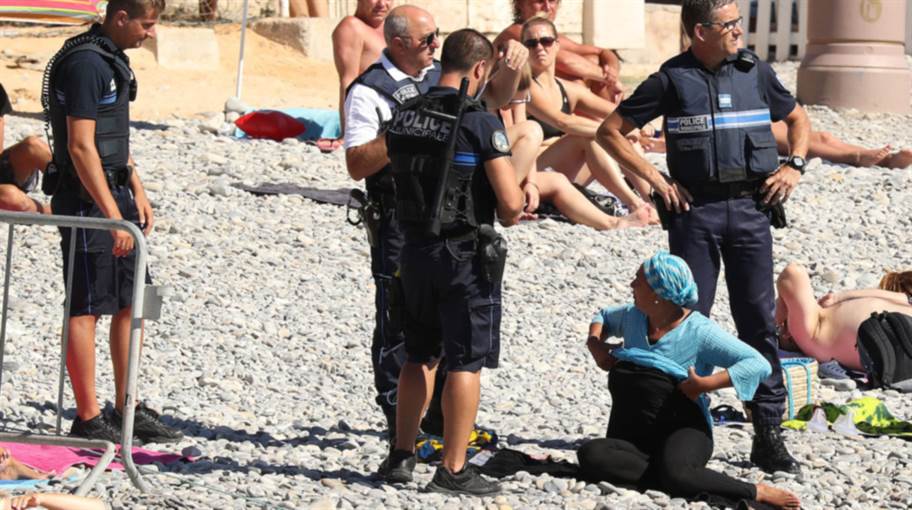
In August, the steering committee of the Arab Europe Citizens’ dialogue met in Cairo to work on the future plans of this dialogue project. Needless to say, this project is highly relevant to most of us in our immediate local context. It also deals with urgent issues in both the European and the Arab context. The Burkini debate in France is just one recent reminder of this. The next dialogue conference will take place at:
*** the Sigtuna Foundation, 9-12 August 2017 ***
I know that this time can coincide with vacation plans for many of our Oikosnet members. But, what can be better than to combine participation in this conference with a vacation in Sweden. Why not spend some time in the beautiful Stockholm archipelago!
I think this conference in Sigtuna will be a vital step in the continuation of this dialogue. My intention is to make it possible for many Oikosnet members to be part of the Sigtuna conference. You will hear more about this later on. Make a note about this conference in your calendar today!
Alf Linderman, Executive Director of the Sigtuna Foundation
Oikosnet in Magdeburg and Wittenberg
Europe and the Reformation, Magdeburg/Germany 6 to 9 November
„Europe” is the theme of the Synod of the Evangelical Church in Germany, which will take place from 6 to 9 November in Magdeburg/Germany. Together with the European Bible Dialogues, the Evangelical Academy in Berlin, the Community of Protestant Churches in Europe and the umbrella organization of the German Protestant Academies (EAD), Oikosnet Europe will be part of designing an equipping an information booth at the Synod. The emphasis is not so much on distributing material. “It is more important to initiate good discussions with members of the Synod about our various organisations, which have a common goal: fostering a just, participatory and sustainable Europe,” Rüdiger Sachau, Director of the Evangelical Academy in Berlin told the Oikosnet Annual Conference in Prague. And a booth just in front of the Plenary Hall of the Synod will help to do precisely that. For further information contact the Oikosnet Secretariat or the Executive Secretary
The reformation jubilee in Wittenberg 2017
Equally, the German Academies and the members of Oikosnet Europe will present themselves in 2017, when Wittenberg will be welcoming guests from all over the world for the reformation jubilee. There will be many activities in Wittenberg mainly from May to October 2017. With the Kirchentag in may a “World Exhibition” will open and a huge panoramic view on the reformation will be presented by the artist Assis. There will be many other exhibitions, concerts, worships and events, including weeks under common mottos. Not at least, the sights of the Lutheran Reformation will present themselves fully renovated.
The Evangelical Academy of Sachsen-Anhalt, based a few meters far away from the Castle area in Wittenberg and the castle church, Luther´s burial place, will become one Pavillion of the “World Exhibition”. And it will offer again a possibility for Oikosnet members to be present and to be visible. Following a three-years network project, the German Academies have already produced some relaxing chairs, which capture some of the results of the network project. They also animate to stand-up for the future and gather strength for the reformation(s) ahead. For further information contact the Director of the Evangelical Academy of Sachsen-Anhalt, Friedrich Kramer at kramer@ev-akademie-wittenberg.de
New open training Dialogue for Peaceful Change (DPC)
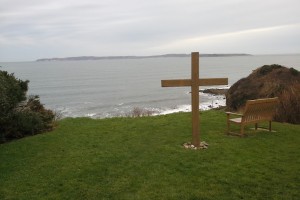
What is the story people are telling when they discuss conflicts? Seldom these stories are told by the people in conflict. That is what we learned at the Annual Conference in 2015, in Corrymeela, Northern Ireland. They are experienced in conflicts. And there it became clear that ways towards reconciliation require changes in stories, which are told about ‘the others’.
These elements are part and parcel of the DPC-trainings, which were developed under the umbrella of Oikosnet. Now a new opportunity arises to take part in such a training.
Dates: Mo 28 November – Fri 2 December (evening) 2016
Arrival: 27 November, before dinner
Departure: 3 December, after breakfast
Place: Corrymeela, Ballycastle, No. Ireland
Trainers: Colin Craig and Shona Bell (both Corrymeela) and Jaap van der Sar (Oikos)
Participation fee: Euro 1.150, VAT included.
Invitation and application form to the conference
Jaap van der Sar
How to respond? Some thoughts after the Annual conference 2016
Transition accomplished or mission impossible – Economic developments and civil society. This was the subject of the study day during the 61st Annual Conference of Oikosnet Europe, held in Prague. In itself such a subject is always too broad. The fact that we had very powerful introductions from different angles made it even broader. The role of civil society was the central issue – as it appears to me when looking back now.
We heard from the situation in some Eastern countries in Europe where meetings of activists are monitored by secret services – just by locating all the mobile phones in a very narrow defined area. Or even at a square where more than 50.000 protesters are gathered. Blocking the providers for mobile phone during the protest hours made communication impossible. And afterwards all owner of mobile phones – spotted at the square – were visited at home: Why were you there? And yet, even knowing this, people protested, appeared at the square.
Another example: in the Czech Republic the strength of civil society has been weakened throughout the decades after World War II. 1948 with the new communist regime, 1956 with the troubles in Hungary which affected also the Czech Republic, the Prague Spring 1968, Charta 77 in 1977 and also the short revival after 1989 resulted each time in a wave of emigration, especially from potential leaders, from quite a substantial part of intelligentsia. What about the strength and history of civil society in such a society?
We are not driven by examples – we are more dedicated by the results which can be obtained. During the meeting of the Gender & Justice Network we were informed about a successful activity by the regional government of Baden Württemberg, Germany. Through a committed minister president and through the support of churches it appeared to be possible to find, transport and welcome more than 1.000 battered women with their children from Yazidi groups in Iraq. They were welcomed, housed and supported in their different ways to start a new life. Civil society was active around them.
During the Annual Conference we had an input from Mr. Daniel Stech, civil servant at the Foreign Office of the Czech Republic. He mentioned some helping ideas for civil society groups. Among them:
- Civil society will always be a minority. Accept that as a fact.
- Create places where you stimulate the imagination
- Create places where you enable face to face meetings
- Apply an open door policy. This enables enrichment from unexpected angles.
- When looking for opportunities to meet with others, take away some of the obvious barriers in places – like cars.
- Organise careful counter attacks against simplified narratives.
In my view this list is encouraging. It is a list which contains realistic options. And also, it is a list which to a high degree characterises the work the members of Oikosnet Europe at the moment. And as a last remark: this was what happened at – again – this Annual Conference.
Besides that we were also productive in other ways. See other input in this newsletter.
All in all is was worth getting to this Annual Conference. Next year we meet in Beugen, Germany, from 6 to 10 September.
Jaap van der Sar president Oikosnet Europe
Oikosnet Europe successfully re-established
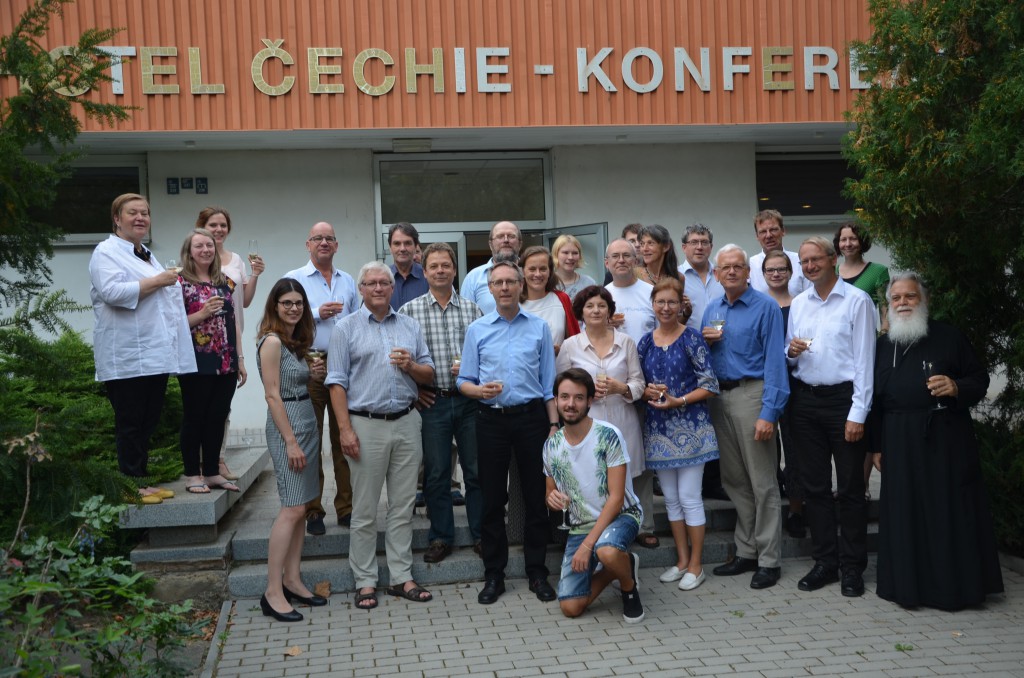
A new ecumenical network of academies and laity centres was founded in Prague on Saturday, 10th September 2016. Oikosnet Europe is based in Sigtuna, Sweden. Jaap van der Sar of Stichting Oikos in the Netherlands is president of Oikosnet Europe. Marielisa von Thadden (Protestant Academy Bad Boll, Germany), was elected vice-president. Rüdiger Noll (The Protestant Academies in Germany, EAD) is executive secretary of the international network. Nicola Murray, The Corrymeela Community, Northern Ireland, was elected treasurer. Oikosnet Europe ideell förening (non-profit association), is the official Swedish name of the network, and on its founding day had 17 members from different European countries, including France, Russia, Italy, Finland, Czech Republic, Slovakia, Switzerland, Germany and Norway. Other academies and centres are expected to join soon. Many have been members of the preceding organisations.
Oikosnet is an ecumenical organisation. Among its members are almost all of the 17 Protestant Academies in Germany. Furthermore, orthodox centres from Greece, Russia and Poland belong to the network. In the European network, Norway is represented by its umbrella organisation, as in Norway there are not only Lutheran, but also some Catholic academies involved – at present a total of more than 70. The number has been continuously growing over the past years by two to three centres per year. Whereas in Norway the organisational and financial framework of the academies is taken care of by the church, academies and centres in other countries depend heavily on donations, project funding, admission fees and immense personal commitment. The staff of the Italian centre “Agape”, for example, largely forgo salary, in the Czech Republic the director of Vilémov/Javornik is currently trying to acquire basic equipment for the centre.
As different as the centres and academies might be, they are all joined in their belief that as Christians we need to act out our responsibility for society and living together peacefully. Conversation, encounters and educational programmes are an important means to achieve this.
Picture: Participants of the Oikosnet annual conference in Prague toasting to the re-establishment of the association according to Swedish law.
